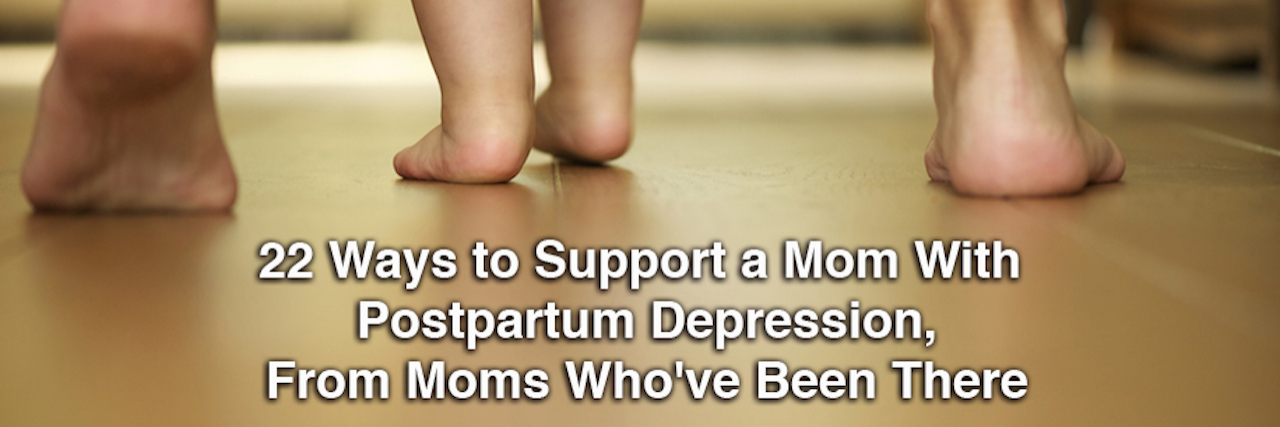22 Ways to Support a Mom With Postpartum Depression, From Moms Who've Been There
A new baby can be the beginning of an exciting chapter in a mother’s life. And while loved ones are often ready with baby blankets, clothes and plenty of toys, they may not be prepared for a mother who is suddenly living with depression. Although, many women experience mild mood changes during or after the birth of a child, 15 to 20 percent of women experience more serious symptoms, and need treatment and support for postpartum depression and other disorders.
So how do we help these mothers when another gift for baby isn’t going to cut it? We asked mothers in our community who had postpartum depression (PPD) to tell us the best way to support a new mother who’s in a difficult place.
Here’s what they had to say:
1. “Please don’t ignore me or push how I’m feeling aside. I’m asking for help in my own way.” — Michelle McRobert
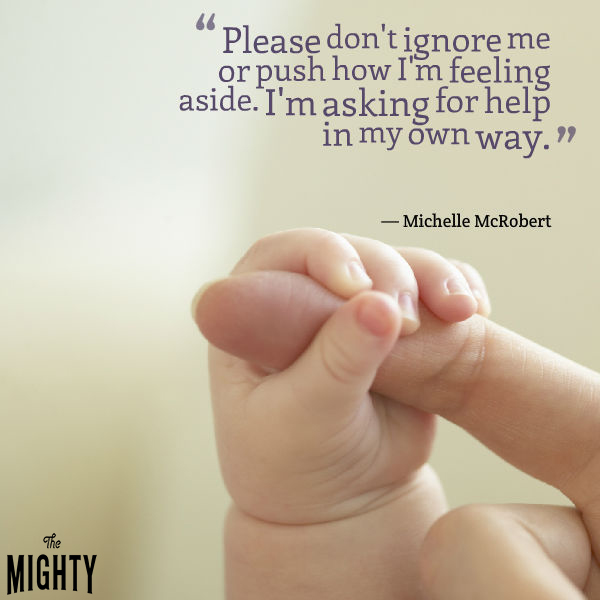
2. “Share your own experience with PPD. Remind me that everything is going to be OK.” — Esmeralda Patino
3. “Check on me. If I confided in you that I had PPD and asked you to check on me, do it. Almost no one ever does. They just ignore it, assume I’m fine.” — Kelly Christianson DeBie
4. “Just be there. If I need you at midnight, be there. If I need to cry, be there. If I need space, respect that. Most importantly, just love me.” — Sammie Prescott
5. “Just hang out with me. Hang in there when I’m crying out of nowhere. Maybe set up some meals or help with laundry.” — Michelle Windish

6. “Ask me how I am doing and don’t accept ‘fine’ as my answer. Tell me I’m a great mother. Tell me you are there for me and then prove it. Give me a hug when you see me. Ask me what you can do to help.” — Jessica Grieves
7. “Please don’t tell me to ‘suck it up’ or to ‘get over it.’ Believe me, if I could I would. Just help me do what I can’t. And love me.” — Jessica Wilkinson LaBonte
8. “Be a friend. Be a shoulder to lean on, but don’t be offended if we want to keep to ourselves sometimes.” — Adrien Hensley
9. “Don’t compare my motherhood experience to anyone else’s, including yours.” — Kristin Novotny
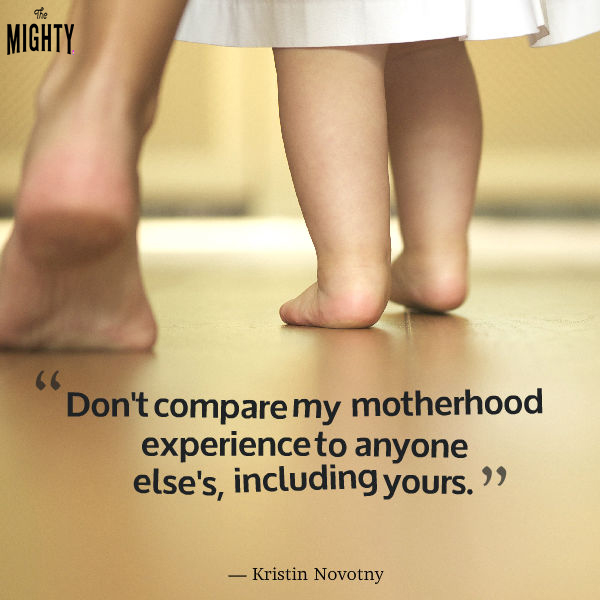
10. “Don’t tell me ‘you’re just tired’ or ‘it’s probably just your horomones.’ Validate my feelings.” — Kelly Ravensberg
11. “I still want you to call or write or tell me you care. I might not have words to say anything back, yet. But please keep asking because one day, I will say yes, and it will mean everything to me that you stayed.” — Anne-Marie Tonyan Lindsey
12. “Show your support by coming and doing ‘dirty’ things like washing the dishes or the laundry. Be available. Tell me I’m not crazy or a bad mom. Tell me you’ll help me find a good therapist/doctor and offer to make the calls for me. Help me feel positive about options like medication.” — Jessica Daniels
13. “Listen. That’s the biggest thing.” — Emily Sinicropi

14. “Notice the little steps I take (going to the shops with baby, not waking up crying etc.) and point them out to me. Not in a patronizing way — just point out it’s not all doom and gloom and step by step I’ll find myself again.” — Jennie Angus
15. “Learn about PPD. Learn about the symptoms, possible triggers and options for treatments. Learn about changes in behaviors to look for. I may not tell you how I’m feeling; many times it’s hard to explain and even harder to confide in someone. If you know the presentation and things to look for, you will be able to identify I’m struggling and help me help myself.” — Margaret Hermosa Rice
16. “When I told someone I was having a hard time, I felt worse if she gave me the pity look. I felt better when someone said, ‘You’re brave because you’re talking about it.’ Another good thing to hear was ‘you’re doing all the right things.’ And finally, best response: ‘Tell me about it.’” — Sandy Burhouse Celauro
17. “Just don’t judge. We judge ourselves hard enough. We don’t necessarily need you to understand it, but please don’t make it worse by demeaning it.” — Kim Lecy
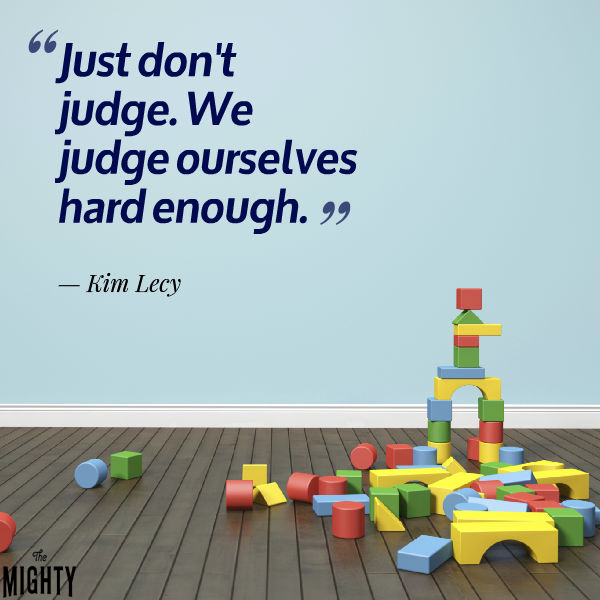
18. “Don’t assume that having PPD means I don’t want to be a mom or that I wasn’t ready. I wanted this more than anything and I still do.” — Avery Furlong
19. “What we say we need is more important than ever. Make it happen; move mountains!” — Amanda Thomas
20. “Watch the baby while I nap. Resting will help me push the reset button.” — Indigo Bleu
21. “Help without being asked! I couldn’t ask for help, but lived on the cups of coffee, the laundry and the food that was done/brought to me.” — Annie Edwards
22. “Believe me when I tell you my story.” — Melissa McCoy
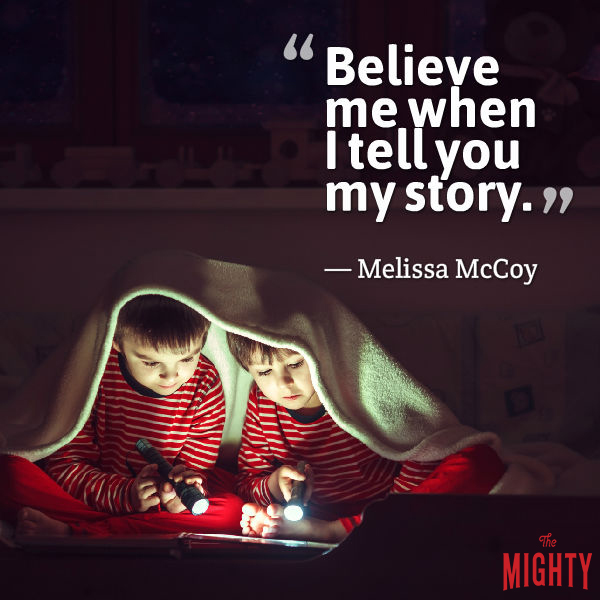
*Answers have been edited and shortened.

